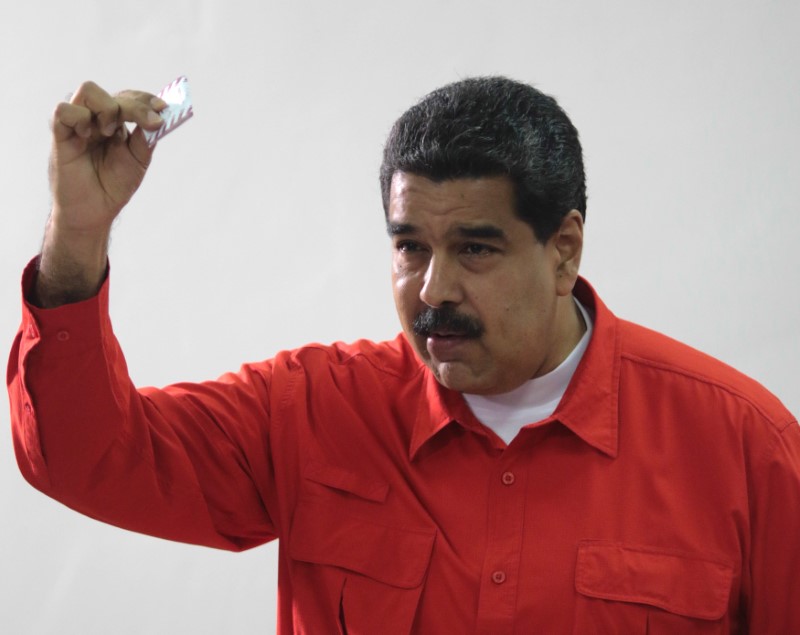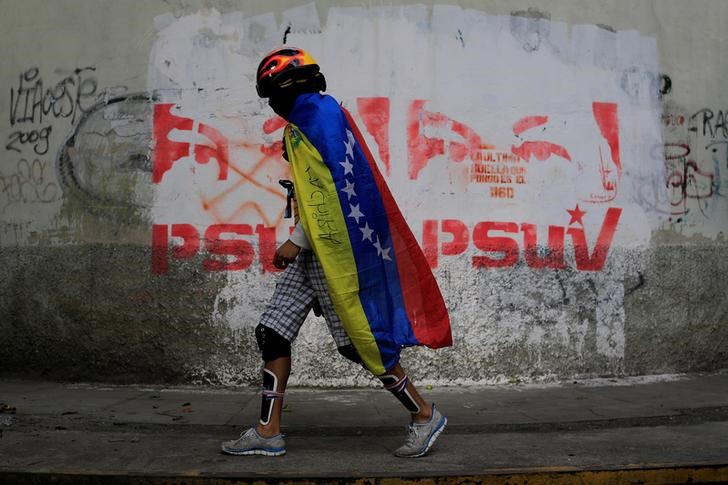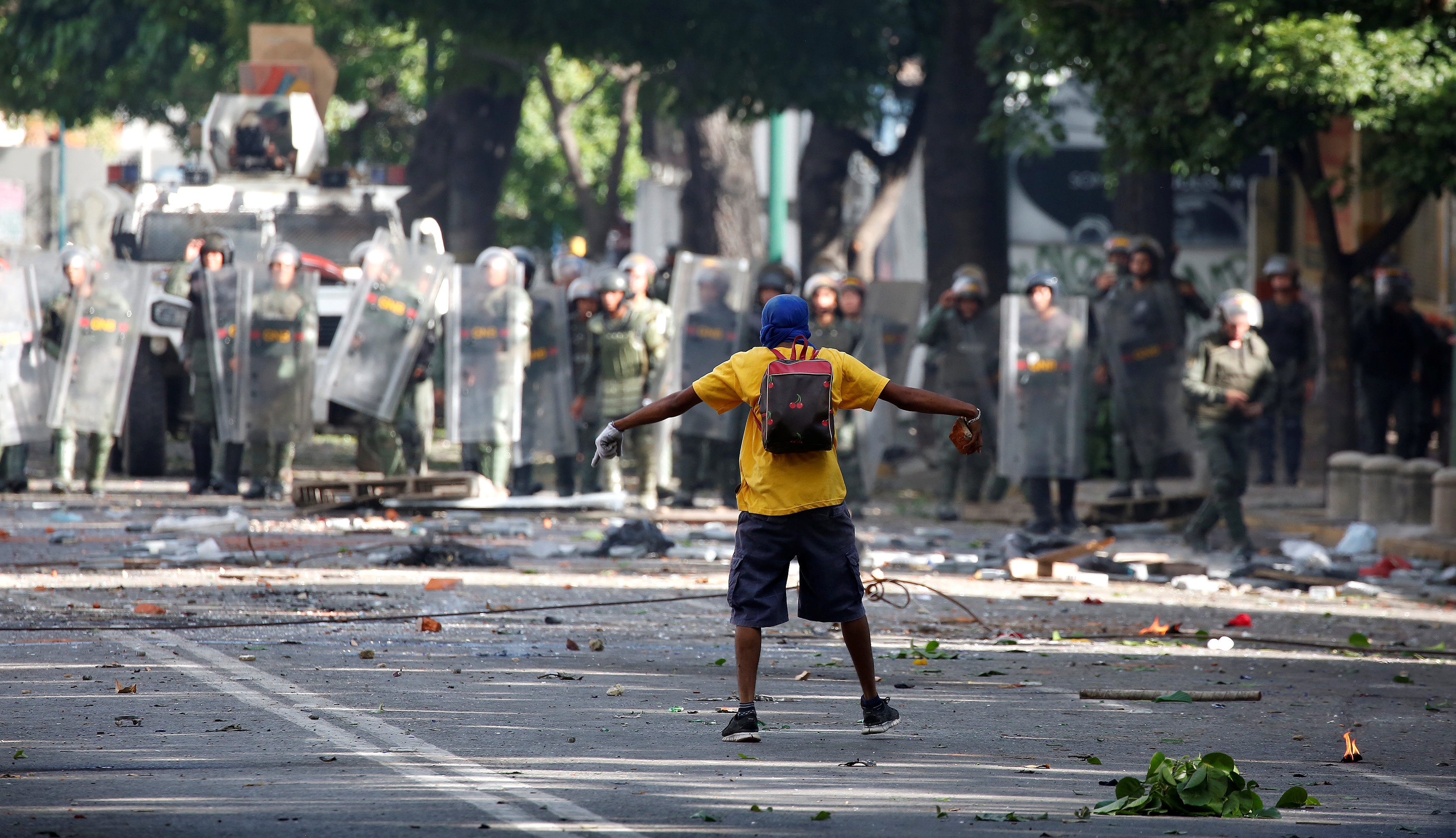
By Maria Tsvetkova and Jack Stubbs
MOSCOW (Reuters) – The Kremlin has ordered the United States to cut about 60 percent of its diplomatic staff in Russia but many of those let go will be Russian citizens, tempering the impact of a measure adopted in retaliation for new U.S. sanctions.
The ultimatum issued by Russian President Vladimir Putin is a display to voters at home he is prepared to stand up to Washington, but is also carefully calibrated to avoid directly affecting the U.S. investment he needs, or burning his bridges with his U.S. opposite number Donald Trump.
All staff at the U.S. embassy in Moscow were on Monday summoned to an all-hands meeting where Ambassador John F. Tefft briefed employees on the Russian decision – the toughest diplomatic demarche between the two countries since the Cold War.
“The atmosphere was like a funeral,” said the person present, who spoke on condition of anonymity because he is not authorised to talk to the media.
Putin said on Sunday Russia was ordering the United States to cut 755 diplomatic staff by September. The move, he said, was in reaction to Congressional approval for a new round of sanctions against Moscow.
Kremlin spokesman Dmitry Peskov said on Monday that the 755
could include Russian citizens, a group who comprise the vast majority of the United States’ roughly 1,200 embassy and consulate staff in Russia.
The clarification from the Kremlin means that there will not necessarily be a mass expulsion of U.S. diplomats because the numbers to be cut can be made up from Russian staff.
Reducing their numbers will affect embassy and consular operations, but that step does not carry the same diplomatic impact as expelling U.S. diplomats from Russia.
Commenting on which diplomatic staff would have to go, Peskov told reporters on a conference call: “That’s the choice of the United States.”
He added: “(It’s) diplomats and technical employees. That is, we’re not talking purely about diplomats – obviously, there isn’t that number of diplomats – but about people with non-diplomatic status, and people hired locally, and Russian citizens who work there.”
A U.S. State Department official, speaking on condition of anonymity, called Russia’s action “a regrettable and uncalled-for act … We are assessing the impact of such a limitation and how we will respond to it”.
As of 2013, the U.S. mission in Russia, including the Moscow embassy and consulates in St Petersburg, Yekaterinburg and Vladivostok, employed 1,279 staff, according to a State Department Inspector General’s report that year. That included 934 “locally employed” staff and 301 U.S. “direct-hire” staff.
Forcing the United States to scale back its diplomatic presence will reinforce Putin’s reputation at home as a resolute defender of Russia’s interests. That will help burnish his image before next year’s presidential election, when he is expected to seek another term.
But the consequences of the Russian retaliation are not so stark that it would permanently alienate U.S. President Donald Trump, according to Alexander Baunov, a senior fellow at the Moscow Carnegie Center, a think tank.
By announcing his counter-measures before Trump signed the sanctions legislation into law, “Putin is sending a message that he is punishing Congress’s America, and not Trump’s America,” Baunov wrote in a Facebook post. “(Putin) has taken Trump out of the direct line of fire and spared his ego.”
Absent from the Russian retaliation were any measures that directly target U.S. investment in Russia. U.S. bluechip companies such as Ford, Citi and Boeing have projects in the country, bringing the kind of investment the Kremlin needs to lift a sluggish economic recovery.
COUNTER-MEASURES
The Russian measures were announced after the U.S. House of Representatives and the Senate overwhelmingly approved new sanctions on Russia. The White House said on Friday that Trump would sign the sanctions bill.
The new U.S. sanctions arose in part from conclusions by U.S. intelligence agencies that Russia meddled in the 2016 U.S. presidential election to help Trump win it, and to punish Russia further for its 2014 annexation of Crimea from Ukraine.
Moscow’s response included word that it would seize two U.S. diplomatic properties – a warehouse in southern Moscow and a complex on the outskirts of the city that embassy staff use for weekend recreation.
On Monday, a Reuters journalist saw five vehicles with diplomatic license plates, one of them a cargo truck, arrive at the recreation complex. The convoy was refused access, the journalist reported.
At the warehouse, a Reuters TV cameraman saw several trucks being loaded by workers in the uniforms of embassy employees.
In an interview broadcast on Russian state television on Sunday, Putin said he acted as there was no sign that relations between Russia and the United States were improving under Trump.
“We were waiting for quite a long time that maybe something would change for the better, were holding out hope that the situation would change somehow. But it appears that even if it changes someday it will not change soon,” Putin said.
Putin said Russia could take more measures against the United States, but not at the moment. “I am against it as of today,” he said in the interview with Vesti TV.
TOWN HALL MEETING
Embassy employees in Moscow were on Monday anxiously waiting to hear if they would keep their jobs.
The person who was present at the embassy meeting said Ambassador Tefft described the Russian decision as unfair.
The ambassador provided no details of where the staff cuts would fall, the witness said, but said Russian staff who were let go would have the right to apply for a special immigration visa to the United States.
“People asked what Russian staff should do now, since a lot of Russian people working for the embassy are blacklisted and cannot find a job in Russian companies,” said the person present.
“The ambassador said that by playing these diplomatic games, the Russian government first of all attacks its citizens, and the Russian government did not even know that the majority of people working at the embassy were Russians.”
An embassy spokeswoman confirmed the meeting had taken place, and the account of the ambassador’s remarks. She declined comment on which departments would be affected by the cuts.
One area likely to be hit by the staff cuts is the U.S. operation that issues visas to Russian citizens seeking to travel to the United States, according to a former U.S. ambassador to Moscow, Michael McFaul.
“If these cuts are real, Russians should expect to wait weeks if not months to get visas to come to U.S.,” McFaul wrote in a Twitter post on Sunday.
(Additional reporting by Polina Devitt, Dmitry Madorsky and Gennady Novik in Moscow and Yeganeh Torbati in Washington; writing by Christian Lowe; editing by Mark Heinrich)











